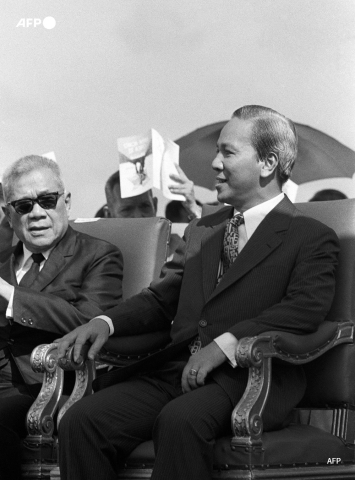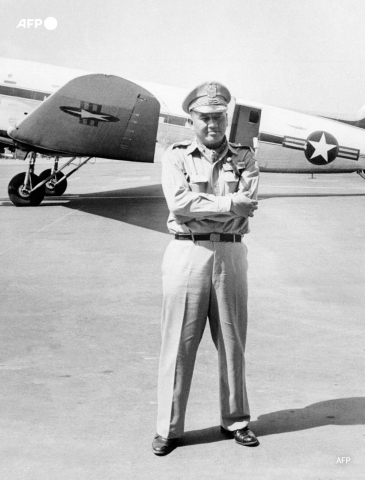South Vietnamese leaders

Several figures played key roles in the South Vietnamese government as North Vietnamese troops were poised to take Saigon, above all Nguyen Van Thieu and Duong Van Minh.
- Nguyen Van Thieu -
President of South Vietnam for most of the war, Thieu was a skilled political operator but someone deemed overly cautious in the end.
He reluctantly signed the 1975 Paris Peace Agreement but later accused Washington of betrayal.
Thieu was an army officer of fairly modest origins who took part in the November 1963 coup against Ngo Dinh Diem, the South Vietnamese president held responsible for the violent crackdown on Buddhist demonstrations that year.
Thieu became South Vietnam's defence minister in 1964-65.
Prior to that, after briefly fighting the French, he had joined the French-backed Vietnamese armed forces and converted to Catholicism, his wife's religion and also that of the future president Diem.
Thieu's contact with both Buddhists and Catholics helped make him the man chosen in 1965 to lead the South Vietnamese government.
He won election in 1967 and again in 1971, when the vote was rigged.
In January 1973 Thieu signed the peace agreement even though he felt that the north, which was allowed to keep troops in the south, would not abide by it. He was proven right.
In the spring of 1975 Thieu lost control of the situation and fled to Taiwan, later settling near Boston, Massachusetts, where he died on September 29, 2001 at the age of 78.

- Duong Van Minh -
The last, fleeting leader of South Vietnam, Minh was forced to accept a humiliating capitulation just 48 hours after replacing Nguyen Van Thieu.
"I call on soldiers of the Republic of Vietnam to cease hostilities and to remain where they are," Minh said in a television broadcast on April 30, 1975.
Known for tending to his orchids and playing tennis, Minh led the 1963 coup that toppled Ngo Dinh Diem and reportedly gave the signal for Diem and his brother to be executed, miring the United States deeper in Vietnam.
After North Vietnam overran the south, he was held prisoner from 1975 until 1983 when he was allowed to leave for France and the United States, where he died on August 6, 2001 at the age of 85.
Born on February 16, 1916 to a wealthy family in the Mekong Delta, Minh was initially a non-commissioned officer in the French army.
Known as "Big" Minh because of his size, he was already a US ally in October 1963 when some became concerned that Diem's authoritarian tactics had become a handicap and should be deposed.
Minh briefly led a military junta after Diem's death but was overthrown in turn in January 1964.
He was placed in power by the United States amid the chaos of April 1975 but surrendered 48 hours later.
